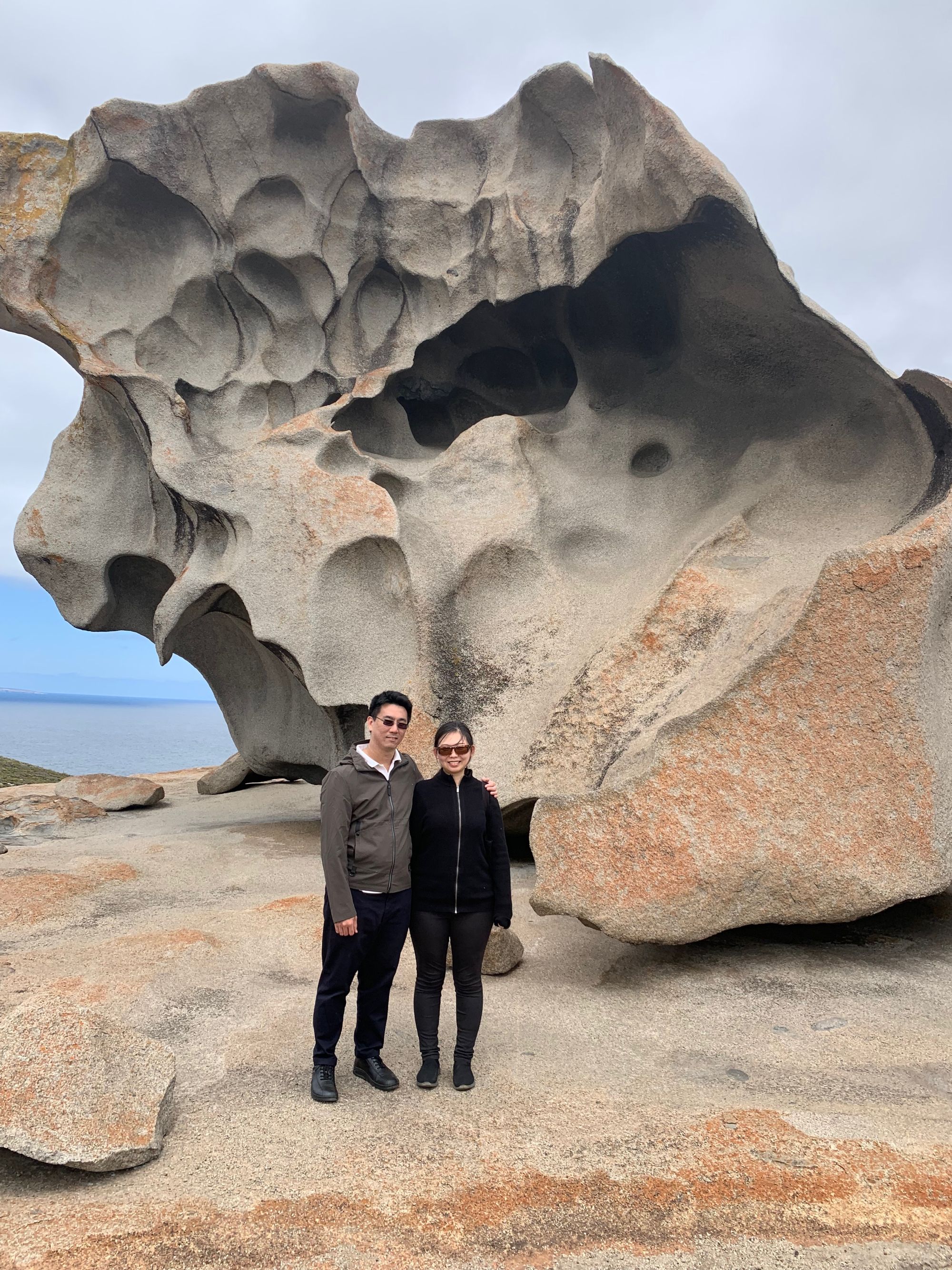An Introduction to Andy Ng
“Successful problem solving requires finding the right solution to the right problem. We fail more often because we solve the wrong problem than because we get the wrong solution to the right problem.” - Russell L. Ackoff

“Successful problem solving requires finding the right solution to the right problem. We fail more often because we solve the wrong problem than because we get the wrong solution to the right problem.” - Russell L. Ackoff
Two of the strongest motivations driving my scientific career has been to: 1) solve the “right problem” - important real-life problems that can create a positive impact on the world, and, 2) explore the intersection of different fields and technologies, which often leads to novel and creative solutions to important problems.
Too often in research, much time, energy and resources are wasted in the pursuit of trivial or inconsequential problems, or to develop “novel” solutions to solved problems where there is no clear need. I believe that truly impactful research (even those that have its roots in relatively obscure fields) can come about only by distilling the right problems to solve, being purpose-driven and keeping an open mind in order to discover creative solutions or applications.
When I was young, I was captivated by how Science could help answer important questions such as our origins, who we are and other mysteries of the universe. Three of my favorite books were: “A Brief History of Time” by Stephen Hawking, “The Dragons of Eden” by Carl Sagan and “In Search of Schrodinger’s Cat” by John Gribbin. This interest led me to an exploratory phase during my formal education, where I interned in several labs across different disciplines and topics, including genetic screens in zebrafish, lipid raft trafficking in cells, plant cell wall biosynthesis, bioinformatic studies of protein-protein interactions by hotspot analysis, and modelling antibody drug-peptide interactions by molecular dynamics simulations. A common theme was that they were all aiming to solve key challenges ranging from bioenergy to human health, using different tools and approaches.
Eventually, I decided to pursue a PhD at Columbia, where I chose to work at the intersection of synthetic biology and metabolic engineering to create cell factories for the sustainable production of pharmaceutical and nutraceutical compounds. What motivated my choice was twofold: 1) The significance of the problem: such compounds are traditionally made chemically using multiple steps or derived from limited natural extracts, which result in low yields and high prices. Microbial cell factories have the potential to revolutionize the production of these compounds to ensure a stable, renewable and low-cost supply of important medicines and nutraceuticals. 2) The ability to integrate ideas and concepts from across different disciplines (synthetic biology, microbial genetics, and systems biology) to transform the speed and scale of the process.
I developed a high-throughput screening platform based on the fluorescence polarization assay that subsequently led to a patent and collaboration with industry. When the initial report of how components of the microbial immune system (CRISPR/Cas) could be used for genome engineering surfaced in 2012, I immediately tested it and was an early adopter of the technology. Today, CRISPR technology has opened the door to a broad range of applications ranging from engineering microbial cell factories, gene drives to curb malaria, to diagnostics and therapeutics for human diseases.
After my PhD, I worked at the Agency for Science, Technology and Research (A*STAR) in Singapore, where I chose to join a newly established program - the Biotransformation Innovation Platform (BioTrans), whose mission was to develop novel sustainable biotechnology solutions for the food, nutrition and consumer care sectors. Again, what motivated me was the key problem of food security, which is a major challenge for Singapore and also globally, as well as the interdisciplinary solutions required to solve the problem (e.g., bioinformatics, strain evolution, metabolic engineering, fermentation technology).
There, I led in-house projects that leveraged metabolic engineering to produce sustainable flavor and fragrance ingredients. I also led several collaborations with multinational food companies where I helped develop solutions to critical challenges faced by those companies. In order to develop novel solutions, I picked up whole genome sequencing and transcriptomics to elucidate novel biosynthetic pathways, as well as bioinformatics to explore biodiversity.
I joined Genetic Intelligence (GI) when it was founded because I strongly identified with its mission to uncover the genetic bases of complex diseases and to leverage that to develop effective precision therapeutics. This is a highly challenging global problem that remains unsolved today, and will only rise in importance as populations around the world age. It is also something that I am sure most people can relate to. Personally, I have experienced the loss of family members to cancer and Alzheimer's disease. The memory of what they and my family have gone through have only served to strengthen my resolve to work towards a cure for these debilitating diseases.
At GI, we leverage the most pertinent technologies and ideas from different disciplines, including genetics, statistics, artificial intelligence and machine learning to develop novel solutions. I am continuously engaged by this interplay between science and technology, and to help in my work, learning new skills. I am excited to work with the GI team towards fulfilling our vision of a new era in genomics and medicine where effective cures are available for complex diseases and humans are free to live out their lives in healthy, productive and fulfilling ways.
